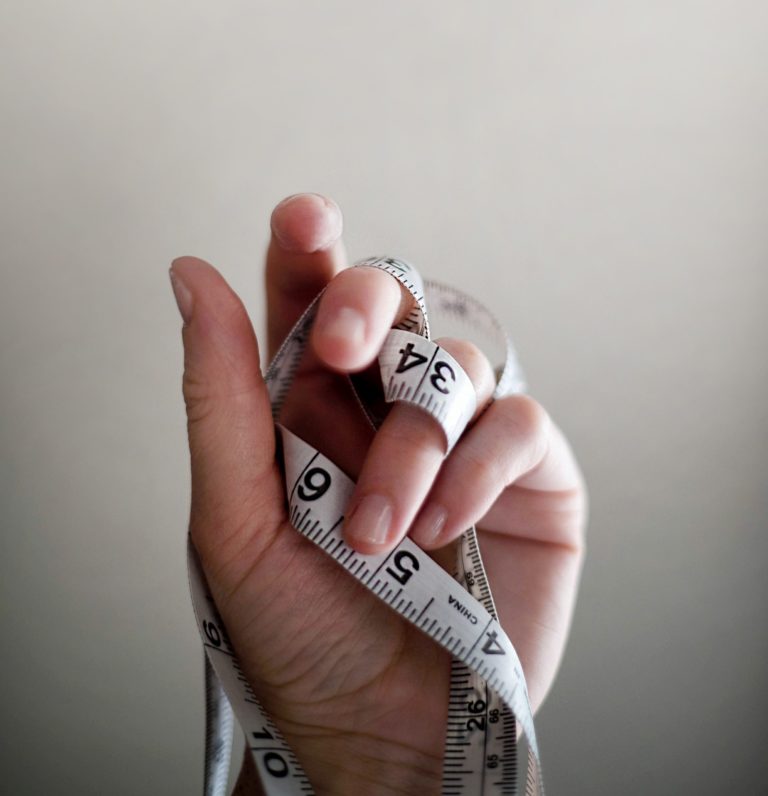
Somehow Elul became diet season.
We’ve all been to the teshuva drashas, workshops, and classes where diets have become the go-to metaphor:
A cookie is a sin, and exercise and hunger are its atonement.
Hunger is evil, and the more we distance ourselves from it, the holier we become.
Sugar and carbs are tempests, and it is our duty to shun them.
We forget that food is the mashal. We get stuck equating our moral standing with how much cake we eat and how much we weigh.
Pleasure exists so we can have the free will to reject it.
Those of a strong will restrict calories; those who are weak become slaves to their “appetites”.
Food is the paradigmatic yetzer hara, and thinness is the indication of a strong yetzer tov. (You’d think the celebrities and models who appear in magazines were gedolei hador!)
We forget that food is the mashal. We get stuck equating our moral standing with how much cake we eat and how much we weigh.
Elul is about retrospection and introspection. It’s about perspective, and purpose, and priorities. It’s about our relationship with our Creator. It’s about meaning and mission. It’s about body vs. soul, life vs. death, reality vs. illusion, child vs. slave, purity vs. defilement. It’s about royalty, and honor, and elevation. It’s about goals, and dreams, and aspirations. It’s about a personal and collective past, present, and future. It’s about creation, and destruction, and recreation.
If Elul is about everything we are and everything we are meant to be, why do we focus all of our efforts on changing our bodies? Do we really believe that when G-d leaves His palace to meet us in the fields, He is going to be thinking about how big our thighs are or whether we have a double chin? Can it possibly make a difference to a Being who spans all of space and beyond whether we are a size 2 or a size 22? To Him, we are all so impossibly small.
Maybe it’s because we are so busy feeling guilty about what we ate that we forget to think about our real transgressions.
How did this season of spiritual transformation and evolution become distorted into a time when we obsess over physical metamorphosis? How is it possible to confuse spiritual work with calorie restriction, for a “food plan” to replace cheshbon hanefesh? How did we get from “teshuva, tefillah, tzeddakah” to “this year I’ll cut carbs and lose 20 pounds”? How did Tzom Gedalia and Yom Kippur become the ultimate jumpstart diet? How did we come to view Yom Tov meals as way to sabotage our goals instead of a way to connect with Hashem and our families?
Maybe it’s because “good and better” have become synonymous with “thin and thinner”.
Maybe it’s because lecturers and teachers use dieting as a metaphor for every goal-related endeavor.
Maybe it’s because if we’re so consumed with what we are consuming, we will be too distracted to seize the opportunity that is being presented to us.
Maybe it’s because we think that if our stomachs or figures are full, we cannot be fulfilled.
Maybe it’s because we think that we cannot expand our souls until we contract our bodies.
Maybe it’s because we are so accustomed to equating our food choices with our morality and our dress sizes with our worth that we forget what real piety is.
Maybe it’s because we spend so much energy trying to mask our physical flaws that we forget that real beauty comes from within.
Maybe it’s because we are so busy feeling guilty about what we ate that we forget to think about our real transgressions.
Maybe it’s because we are so used to associating satiety and pleasure with failure that we lose sight of all of our accomplishments.
We are so much more than what we eat.
Our Tzelem Elokim is infinitely more profound than what we see in the mirror.
Our experience of desire and pleasure is so much more complex than our dietary choices.
Our “middos” cannot be measured with a ruler.
Our worth cannot be weighed in pounds.
Our strength, conviction, and self-control are not dictated by how much food is on our plates.
Our beauty is far deeper than our skin.
Our Tzelem Elokim is infinitely more profound than what we see in the mirror.
Let’s aspire to enrich our lives instead of finding ways to punish ourselves. Let’s add positivity and productivity instead of focusing on deprivation and abstinence. Let’s discover what nourishes our bodies and souls instead of forcing them to conform to society’s expectations. Let’s embrace our bodies as holy and miraculous vessels instead of resenting their needs and natural functions. Let’s celebrate and actualize our souls’ capacity for development instead of diverting our energies to redesigning our bodies.
Just for Elul, let’s set aside our external appearances and return to our deepest selves.